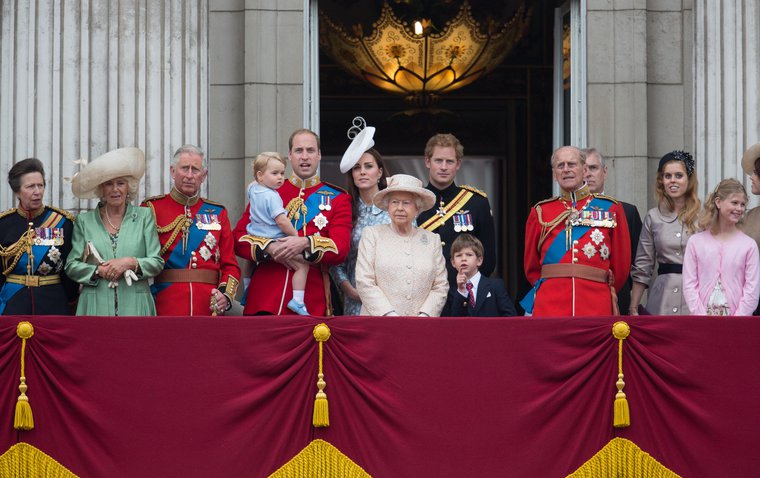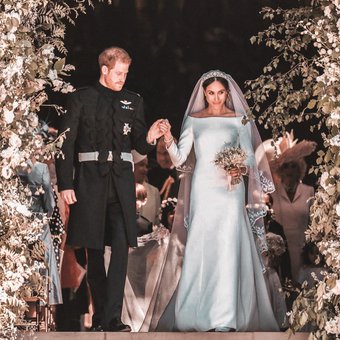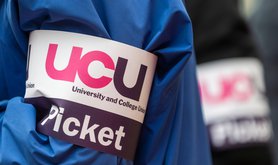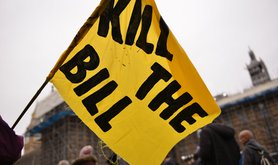
What’s wrong with Britain? Let’s start with the monarchy
The Royal Family’s archaic-seeming rules and customs obscure its deep connections with modern global corporate power

On 12 October 2018, Princess Eugenie married Jack Brooksbank at Windsor Castle, in a ceremony funded in part by the Sovereign Grant, the British government’s annual payment to the monarchy. At my local gym that day, I overheard two people discussing the day’s events.
“I hate it when people moan about how much money royal weddings cost,” one said. “This country has more important problems to worry about. I thought she looked beautiful.”
This is neither the first nor the last time I have heard such sentiment. In the six years I’ve been writing my new book, ‘Running the Family Firm: How the monarchy manages its image and our money’, I have been asked many times why I spend so long thinking about monarchy when we are faced with seemingly more important global inequalities.
My reply is that to understand these other problems, we must understand monarchy, particularly in the British context. While research and commentary on elite corporate power is increasingly being used to understand global inequalities, the monarchy is very rarely considered as part of this. It’s often dismissed as an archaic institution, an anachronism to corporate forms of wealth and power, and therefore irrelevant.
Meanwhile, the monarchy is moralised in media culture through representations of national identity, ‘the family’ and philanthropy, which circumvent questions of inequality, aristocratic state power and privilege. The gym-goer’s comment – “I thought she looked beautiful” – is doing precisely this: masking monarchical power through individualised ideologies of gender, fairytale and love.
However, the relationship between monarchy and capitalism is as old as capitalism itself. To pretend the monarchy is a banal tradition is to completely overlook centuries of exploitation and accumulation that have helped it to survive.
The Firm and tax avoidance
In my book, I describe the monarchy as a corporation – the Firm – to expose its underlying capitalist logic. One example of where this came to light was during the leak of the ‘Paradise Papers’ on global tax avoidance, which revealed that the Duchy of Lancaster – the Queen’s private estate – had used offshore private equity funds to avoid paying more tax on its holdings. Global corporations such as Apple, Nike and Facebook were also embroiled in the scandal.
By law, the Crown is exempt from taxation, and the Sovereign Grant is exempt from income tax. In 1992, responding to anger over public funds being used to restore Windsor Castle after a fire, the Firm agreed to pay ‘voluntary’ income and capital gains tax on private investments and the Privy Purse, the sovereign’s income from the portfolio of land, property and assets held by the Duchy of Lancaster – but only “to the extent that the income is not used for official purposes”. At the time, the exact sum of this income tax, as well as the size of the wealth the income is taxable from, remained undisclosed. The Crown is also exempt from inheritance tax on “sovereign to sovereign bequests”, meaning assets can pass from monarch to monarch without alteration or loss of wealth.
The relationship between monarchy and capitalism is as old as capitalism itself
This means that, while corporations like Amazon move their headquarters to avoid paying tax in the countries where their wealth is accumulated, the Firm relies on the (uncodified) British constitution and political custom to play the same game. The Firm therefore stitches together historical customs with financial capitalist logic.
In ‘Treasure Islands: Tax Havens and The Men Who Stole the World’, Nicholas Shaxson describes tax havens as offering “escape routes from the duties that come with living and obtaining benefits from society – tax, responsible financial regulation, criminal laws, inheritance rules and so on”. But the Firm has been doing this for centuries by being legally exempt from taxation. Long before offshore tax havens, the aristocracy and the monarchy were avoiding tax by investing landed estates in trusts. Meanwhile, it presents ‘voluntary’ taxation as benevolent giving.
The Firm’s corporate connections
The Crown is legally a common law corporation. As Guy Standing argues in ‘The Corruption of Capitalism’, rentier capitalism – monopoly ownership of scarce assets, such as land or intellectual property, by a few wealthy individuals or companies – historically began with the monarchy’s attempts to raise capital through fee extraction. This ranged from the patent system and copyright laws, to landlordism and the enclosure of public space.
The Firm has also benefited from colonial wealth accumulation and systems of racial capital. Many monarchs profited directly from trade deals through customs duties. Elizabeth I granted a Royal Charter to the British East India Company in 1600, which established trading posts on the island of Java and Surat in India, before expanding across Asia and the Caribbean as a sovereign power on behalf of the British Crown. In 1660, King Charles II formed the Royal Africa Company, which was led by his younger brother, the Duke of York, and which extracted commodities (mainly gold and ivory) from the Gold Coast. It also established a brutal slave trade, transporting more than 3,000 Africans to Barbados, many with the initials ‘DY’ burned into their chests to signify their belonging to the duke. Both men invested private funds in the enterprise.
Today, the Firm has multiple corporate investments, interests and contacts. Duchy Organics is a company set up by Prince Charles in 1990, and sells organic food products in partnership with Waitrose. Heads Together, the mental health charity headed by Prince William and Kate Middleton and Prince Harry, has four corporate partners: Virgin Money, Dixons Carphone, Unilever, and BlackRock. The Prince’s Trust regional awards are sponsored by HSBC, Royal Bank of Scotland, Ulster, Natwest, Dell, Delta Air Lines, Tesco, G4S and BAE Systems. Individual royals have even been involved in sponsorship deals, such as Zara Phillips for Rolex, and Peter Phillips for Jersey Milk.
Related story
The royal scapegoats
Upon former Hollywood actor Meghan Markle’s marriage into the Firm in 2018, and particularly since her and Prince Harry’s resignation in 2020, there have been media and public debates about how they have commercialised the British monarchy. In the Daily Mail, for example, commentator Max Hastings wrote an article headlined ‘My worries over this vulgar Hollywoodising of the young royals’. These comments seem to assume that the Firm is not otherwise ‘commercial’ or involved in corporate capital reproduction. Indeed, The Guardian noted “the gulf between regal precedent and the current influencer economy”.
Yet to single out Harry and Meghan for commercialising the Firm is to conceal a whole set of monarchy-corporate connections. By placing the blame with Harry and Meghan, the monarchy is once again insulated from critique. The ideology that the monarchy is some archaic institution – extremely useful in order to ensure it is seen as irrelevant – can continue.
Elsewhere in the world, monarchy and corporate power are more visibly connected. The Princely Family of Liechtenstein, for example, owns Liechtenstein’s biggest financial group, LGT, with Prince Maximilian acting as CEO. The family’s estimated worth is $4.4bn. Yet to find the British monarchy’s estimated worth is a minefield of competing figures, given that laws of precedence often preclude monarchy from having to reveal the ‘personal wealth’ of individual royals. Yet if all monarchical wealth comes from public funds at some point, via different extraction tactics, how can we even differentiate between ‘public’ and ‘private’ wealth?
Ellen Meiksins Wood argues in ‘The Pristine Culture of Capitalism’ that “there has been no fatal disjuncture between a capitalist economy and a political-cultural ancien régime suspended in time somewhere around 1688”. Rather, state, society and culture have always already been bound together with capitalism, and therefore they are all built along the same ideological lines. These are not separate entities: they’re working to and from the same aims. Likewise, I argue that we cannot talk about capitalist inequalities in Britain today without talking about the monarchy. The principles by which monarchy works are key principles by which the whole system works, and in understanding monarchy we can begin to make sense of the system.
Read more
Get our weekly email





Comments
We encourage anyone to comment, please consult the oD commenting guidelines if you have any questions.